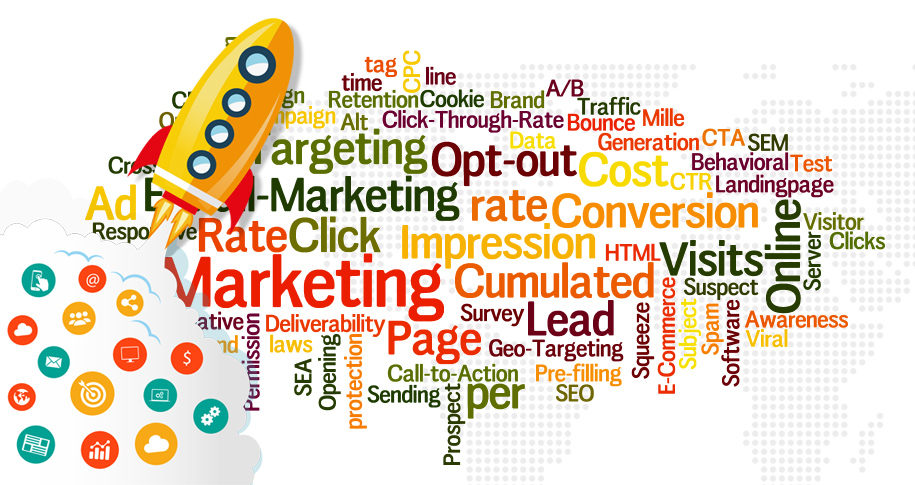What is Multi-Channel MarketingWhat is Multi-Channel Marketing?
Mult... More?
Multi-channel marketingWhat is Multi-Channel Marketing?
Mult... More refers to the strategy of using multiple marketing channels to reach and engage customers. These channels may include traditional methods like print advertisingDefinition
Brand awareness is the ext... More, as well as digital platforms like social mediaDefinition
Brand awareness is the ext... More, email marketingWhat Is Email Marketing?
Email market... More, and websites. The goal is to create a unified customer experience across all touchpoints and maximize the impact of marketing efforts.
Why Is Multi-Channel MarketingWhat is Multi-Channel Marketing?
Mult... More Important?
- Increases Brand Visibility
- By using multiple marketing channels, businesses can ensure that their message reaches a wider audience. Whether customers are browsing social mediaDefinition
Brand awareness is the ext... More, reading emails, or visiting websites, they’ll encounter the brand consistently across different platforms. - Example: A clothing brand could engage customers through Instagram, email newsletters, and online ads to increase its visibility.
- By using multiple marketing channels, businesses can ensure that their message reaches a wider audience. Whether customers are browsing social mediaDefinition
- Improves Customer Engagement
- Multi-channel marketingWhat is Multi-Channel Marketing?
Mult... More allows businesses to interact with customers through their preferred communication channels. Engaging with customers on various platforms increases the likelihood of building stronger, more meaningful relationships. - Example: A restaurant might engage customers on Instagram with visually appealing posts, on Facebook with reviews and updates, and through email with promotions and event announcements.
- Multi-channel marketingWhat is Multi-Channel Marketing?
- Creates a Seamless Customer Journey
- Multi-channel marketingWhat is Multi-Channel Marketing?
Mult... More ensures that the customer journey is seamless, no matter where the interaction takes place. Whether a potential customer first learns about your product via an ad or a social mediaDefinition
Brand awareness is the ext... More post, they can continue their journey through email, website, or even in-store experiences. - Example: A consumer might see an ad on YouTube, follow the brand on Instagram, then click through to a product page on the website to make a purchase.
- Multi-channel marketingWhat is Multi-Channel Marketing?
- Increases Conversion Rates
- Reaching customers across multiple touchpoints improves the chances of conversions. The more opportunities you provide for customers to interact with your brand, the more likely they are to convert.
- Example: A customer who receives an email reminder about an abandoned cart and sees a targeted ad on Facebook may be more likely to complete the purchase.
- Provides Valuable Data Insights
- Multi-channel marketingWhat is Multi-Channel Marketing?
Mult... More helps businesses gather data from various platforms, which can be used to understand customer behavior and improve marketing strategies. By analyzing interactions across different channels, businesses can identify which platforms drive the most traffic and conversions. - Example: A business might track customer behavior across email, social mediaDefinition
Brand awareness is the ext... More, and website visits to adjust its strategy for better performance.
- Multi-channel marketingWhat is Multi-Channel Marketing?
How to Implement Multi-Channel MarketingWhat is Multi-Channel Marketing?
Mult... More
- Understand Your Audience
- Research where your target audienceWhat is Target Audience?
A target aud... More spends most of their time and focus on the channels they prefer. This ensures your marketing efforts are tailored and efficient. - Example: A brand targeting millennials might focus on Instagram, TikTok, and YouTube.
- Research where your target audienceWhat is Target Audience?
- Create Consistent Messaging
- Ensure that your brand messaging is consistent across all channels. Customers should be able to recognize your brand and the value it offers, no matter where they encounter it.
- Example: A business selling eco-friendly products should maintain its commitment to sustainability across all marketing materials.
- Use Cross-Channel AnalyticsDefinition
Analytics refers to the sy... More- Leverage analyticsDefinition
Analytics refers to the sy... More to understand how customers interact with your brand across different touchpoints. This can help optimize campaigns and improve ROI. - Example: By analyzing conversion rates on email, social mediaDefinition
Brand awareness is the ext... More, and website visits, a business can identify which channels drive the most sales.
- Leverage analyticsDefinition
- Automate Cross-Channel Campaigns
- Use marketing automationWhat is Marketing Automation?
Marketi... More tools to run campaigns that span multiple channels. This can help ensure that your message reaches customers at the right time and in the right place. - Example: An automated email campaign triggered by a social mediaDefinition
Brand awareness is the ext... More interaction can increase the chances of conversion.
- Use marketing automationWhat is Marketing Automation?
Conclusion
Multi-channel marketingWhat is Multi-Channel Marketing?
Mult... More is an effective strategy for building a strong and consistent brand presence across various platforms. By engaging customers at multiple touchpoints, businesses can increase visibility, drive higher conversions, and deliver a more seamless customer journey.
